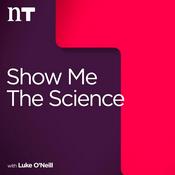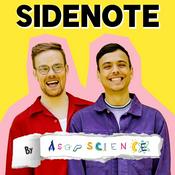525 episodes
Rishi Rajpopat, "Panini's Perfect Rule: A Modern Solution to an Ancient Problem in Sanskrit Grammar" (Harvard UP, 2025)
29/1/2026 | 1h 24 mins.Around 500 BCE, the Indian scholar Pāṇini wrote a treatise on Sanskrit, the Aṣṭādhyāyī, describing a kind of language machine: an algebraic system of rules for producing grammatically correct word forms. The enormity and elegance of that accomplishment—and the underlying computational methodology—cemented Pāṇini’s place as a founder of linguistics. Even so, centuries of commentators have insisted that there are glitches in the machine’s ability to tackle rule conflict (that is, a situation in which two or more rules are simultaneously applicable) and have responded with complex rules and tools aimed at resolving the issues apparently besetting the ancient system. In this book we discuss Panini's Perfect Rule: A Modern Solution to an Ancient Problem in Sanskrit Grammar (Harvard UP, 2025)
Learn more about your ad choices. Visit megaphone.fm/adchoices
Support our show by becoming a premium member! https://newbooksnetwork.supportingcast.fm/languageDaniel Eastman An, "Fear of God: Practicing Emotion in Late Antique Monasticism" (U California Press, 2025)
24/1/2026 | 38 mins.In the writings of ancient Christians, the near-ubiquitous references to the "fear of God" have traditionally been seen as a generic placeholder for piety. Focusing on monastic communities in late antiquity across the eastern Mediterranean, Fear of God: Practicing Emotion in Late Antique Monasticism (U California Press, 2025) by Dr. Daniel Eastman An explores why the language of fear was so prevalent in their writings and how they sought to put it into practice in their daily lives.
Drawing on a range of evidence, including sermons, liturgical prayers, and archaeological evidence, Dr. An explores how the languages monastics spoke, the socioeconomic settings they inhabited, and the visual spaces in which they prayed came together to shape their emotional horizons. By investigating emotions as practices embedded in the languages, cultures, and sensorial environments of late antiquity, this book offers new insights into the spiritual world of Christian monasteries.
This interview was conducted by Dr. Miranda Melcher whose book focuses on post-conflict military integration, understanding treaty negotiation and implementation in civil war contexts, with qualitative analysis of the Angolan and Mozambican civil wars. You can find Miranda’s interviews on New Books with Miranda Melcher, wherever you get your podcasts.
Learn more about your ad choices. Visit megaphone.fm/adchoices
Support our show by becoming a premium member! https://newbooksnetwork.supportingcast.fm/languageSylvia D. Hoffert, "Wagging Tongues and Tittle Tattle: Gossip, Rumor, and Reputation in a Small Southern Town" (U Georgia Press, 2025)
08/12/2025 | 46 mins.In Wagging Tongues and Tittle Tattle: Gossip, Rumor, and Reputation in a Small Southern Town (University of Georgia Press, 2025), Dr. Sylvia Hoffert calls on a particularly rich collection of primary sources, including diaries, letters, oral histories, census data, court documents, church records, and psychiatric hospital logs, all relating to Hillsborough, North Carolina, to argue that gossip and rumor were central to the formation of interpersonal relationships and an integral part of small-town life in the antebellum South. They exposed the insecurities and anxieties of the town’s inhabitants. Indeed, they served as important weapons in the power struggle between the white slaveholding elite—who tried to exert, maintain, and consolidate their control over community life—and the Black, white, and mixed-race men and women, free and enslaved, who did their best to challenge the socioeconomic status quo. And they exposed fissures in the social fabric that discretion, good manners, and historical amnesia could not obscure.
The result was that, on a day-to-day basis, the shady streets of Hillsborough may have seemed peaceful to the casual observer. But underneath all that tranquility, the town was ripe with competition and conflict as the inhabitants used gossip to negotiate relationships with their neighbors and make places for themselves in the social, economic, and political hierarchy of the community.
This interview was conducted by Dr. Miranda Melcher whose book focuses on post-conflict military integration, understanding treaty negotiation and implementation in civil war contexts, with qualitative analysis of the Angolan and Mozambican civil wars. You can find Miranda’s interviews on New Books with Miranda Melcher, wherever you get your podcasts.
Learn more about your ad choices. Visit megaphone.fm/adchoices
Support our show by becoming a premium member! https://newbooksnetwork.supportingcast.fm/languageRadio ReOrient 13.7: "Linguistics, Citizenship and Belonging,” with Kamran Khan, hosted by Claudia Radiven and Marchella Ward
28/11/2025 | 45 mins.In this episode, Claudia Radiven and Chella Ward talked with Kamran Khan about linguistics, citizenship and belonging. The conversation travelled from the 2001 Northern riots in the UK, to the Prevent policy, all the way to more recent adjustments to the Nationalities and Borders Bill. Khan is currently the director of the MOSAIC research group on multilingualism and an associate professor of language, social justice and education. He also wrote the book “Becoming a Citizen: Linguistic Trials and Negotiations in the UK”.
Learn more about your ad choices. Visit megaphone.fm/adchoices
Support our show by becoming a premium member! https://newbooksnetwork.supportingcast.fm/languageLuke Gibson, "Reading Sanskrit: A Complete Step-By-Step Introduction with Texts from the Buddhist Tradition" (Columbia UP, 2025)
20/11/2025 | 41 mins.This textbook offers a fresh approach to learning Sanskrit, the ancient language at the heart of South Asia’s vast religious, philosophical, and literary heritage. Designed for independent learners and classrooms alike, it provides a uniquely in-depth and immersive introduction to the language, exploring a rich selection of Sanskrit texts from the Buddhist tradition.
Reading Sanskrit: A Complete Step-By-Step Introduction with Texts from the Buddhist Tradition (Columbia UP, 2025)draws from the Buddhist tradition’s vast Sanskrit corpus to present a thematically coherent collection of texts covering a wide range of literary genres, including narrative, philosophical, and poetic writings. This unique choice of source material provides an engaging approach to language learning, immersing the student in one of the major strands of South Asian spirituality and culture while highlighting Buddhism’s connection to other religious and literary traditions.
Learn more about your ad choices. Visit megaphone.fm/adchoices
Support our show by becoming a premium member! https://newbooksnetwork.supportingcast.fm/language
More Science podcasts
Trending Science podcasts
About New Books in Language
This podcast is a channel on the New Books Network. The New Books Network is an academic audio library dedicated to public education. In each episode you will hear scholars discuss their recently published research with another expert in their field.
Discover our 150+ channels and browse our 28,000+ episodes on our website: newbooksnetwork.com
Subscribe to our free weekly Substack newsletter to get informative, engaging content straight to your inbox: https://newbooksnetwork.substack.com/
Follow us on Instagram and Bluesky to learn about more our latest interviews: @newbooksnetwork
Support our show by becoming a premium member! https://newbooksnetwork.supportingcast.fm/language
Podcast websiteListen to New Books in Language, Boring History for Sleep and many other podcasts from around the world with the radio.net app
Get the free radio.net app
- Stations and podcasts to bookmark
- Stream via Wi-Fi or Bluetooth
- Supports Carplay & Android Auto
- Many other app features
Get the free radio.net app
- Stations and podcasts to bookmark
- Stream via Wi-Fi or Bluetooth
- Supports Carplay & Android Auto
- Many other app features

New Books in Language
Scan code,
download the app,
start listening.
download the app,
start listening.





































